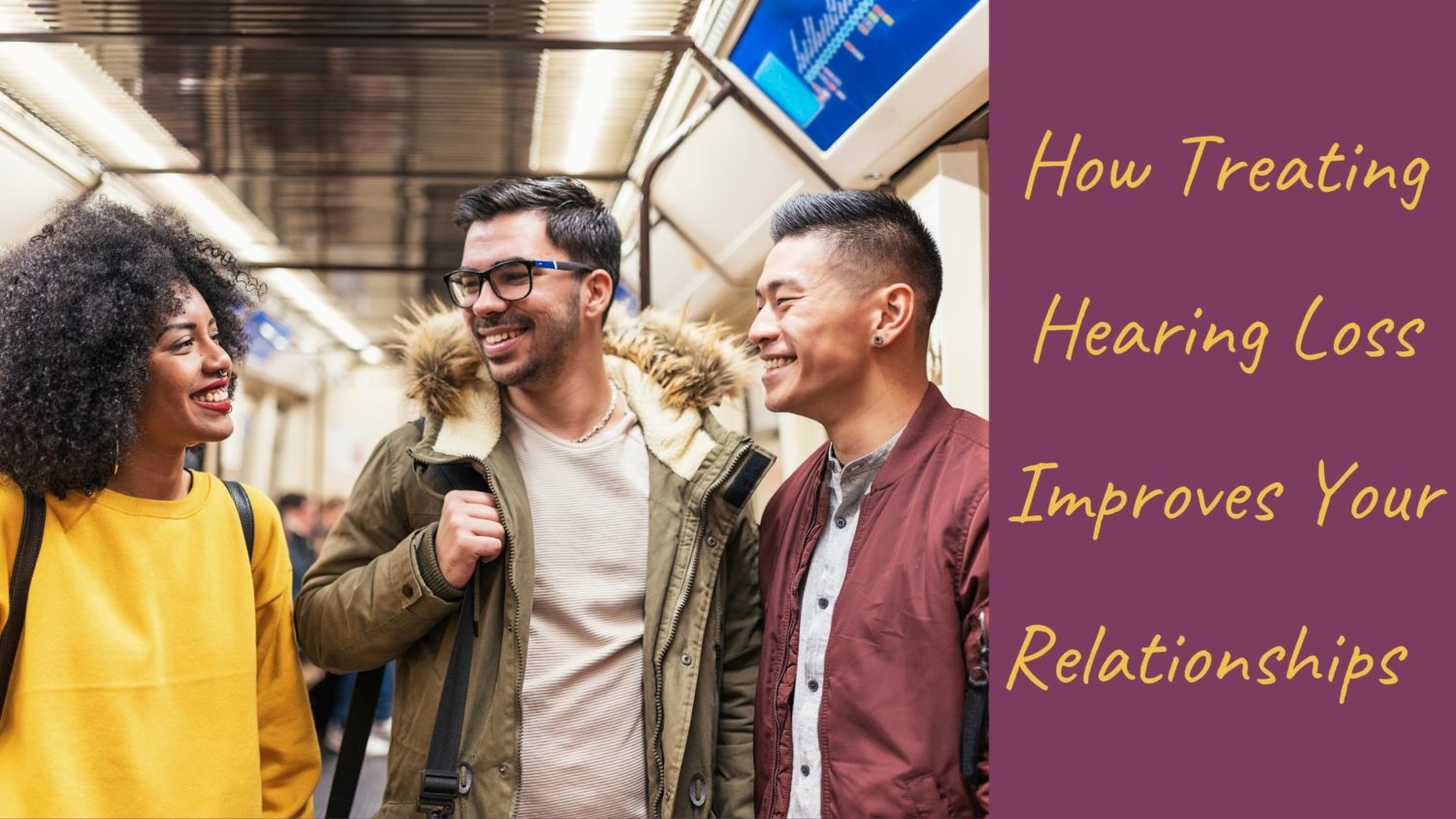- Summer Sports and Their Impact on Hearing Health - July 15, 2024
- Should You Disclose Your Hearing Loss? - July 3, 2024
- What Is the Impact of Smoking and Alcohol on Hearing? - June 25, 2024
They say that relationships are built on good communication, but what does that really mean? Of course, being able to express to others what we need and to listen and to respond to their needs is a big part of the process of building trust with others, but at an even deeper level, communication is the definition of “relating.” When we have a relationship with another person, whether they are family, friends, or romantic partners, we make connections through shared meaning. When another person says a word or uses other signs to get across a meaning, we can relate over that invisible connection in thought. Though there’s no way to tell if we are understanding exactly what another person is trying to get across through language, we do our best to make sense of others through this process. At the fundamental level of human social life, relationships are defined by communication.
What effect does this definition of relationships have on those of us with hearing loss? Although other forms of communication undoubtedly do the work of building relationships, as well, it is clear that verbal communication is a primary way to build connections with others. When we speak, we want to be understood and accepted on the basis of what we have conveyed. Similarly, when others tell us something, we want to have the experience of understanding where they are coming from. Experiences of strong, solid connections and intimacy tend to be built on these moments of deep personal disclosure, as well as causal sharing of thoughts, feelings, and opinions. If hearing loss goes untreated, it can get in the way of these connections, even doing harm to the emotional trust we want to share with others. Let’s consider the ways that getting treatment for hearing loss can improve relationships of all kinds.
Eliminating Guesswork
In strong, solid relationships, we want to have a general sense of what to expect and experience from others. For instance, when we ask a question, we want to know that we can rely on the answer we receive. We also want to trust that others have heard the things we tell them, so that we can rely on their future responses. Hearing loss can get in the way of this process, making it difficult to rely on others’ knowledge and responses. If you find yourself sharing information with a person and relying on them to act upon it, it can feel like a breach of trust even if they simply did not hear what you have to say.
Allowing Disclosure
In our deepest moments of connection, we want to disclose personal information, opinions, and feelings with others. We need to feel that we are safe when we communicate these personal pieces of information with others, sure that they will be kept in trust and respect. Unfortunately, untreated hearing loss can get in the way of these conversations that allow disclosure. When verbal communication is a barrier between us, it can add up to the feeling that we cannot share our deepest selves.
Casual Sharing
Recent studies have shown that, although deeply personal disclosure can create some kinds of bonds, a strong, trusting familial connection tends to be built on the small stuff: comments while moving around the house, casual opinions on things, and little jokes. These asides seem like small matters, not the consequential telling of secret truths. However, these moments add up to a life lived with others, the knowledge that we are heard, considered and understood. Although these casual asides can be communicated in other ways, verbal speech tends to be the quickest way to share these minor moments in life.
Treating Hearing Loss
Getting treatment for hearing loss can build a bridge between loved ones that might have deteriorated through the process of hearing loss. Rather than gaps in understanding, we are able to feel a fluid conversation unfold that connects our past, present, and future selves.
If you or someone you love is experiencing relationship strain due to hearing loss, don’t delay seeking treatment. The first step is to schedule a hearing exam, and that simple test will point you in the direction of better communication and relationships to come.

